Theoretische Teilchen- und Kernphysik
Prof. Nora Brambilla
Forschungsgebiet
Our research is focused on Effective Field Theories (EFTs) and Renormalization Techniques with applications in Particle Physics and Hadronic/Nuclear Physics. Effective quantum field theories are the state-of-the-art tools for analyzing physical systems that contain many different energy or momentum scales. Such systems are the rule, rather than the exception, from the high-energy domain of Particle Physics to the low-energy domain of Nuclear Physics.
Specifically we construct and apply new effective field theories to deal with processes of strong interactions and QCD, Standard Model and beyond the Standard Model physics. At T30f we study non-relativistic effective field theories with applications to heavy-quark processes and quarkonium physics at accelerator experiments (BELLE, BESIII, LHC and PANDA experiments); EFTs for strong interactions at finite temperature and density with applications to processes taking place at heavy-ion experiments at RHIC and LHC, as well as in cosmological environments. Furthermore we work on high-order perturbative calculations in QCD with applications to precision determination of certain Standard Model parameters (quark masses, strong coupling constant) as well as non-perturbative and computational methods in field theory with application to non-perturbative QCD and the confinement mechanism.
Mitarbeiterinnen und Mitarbeiter der Arbeitsgruppe
Professorin
| Photo | Akad. Grad | Vorname | Nachname | Raum | Telefon | |
|---|---|---|---|---|---|---|
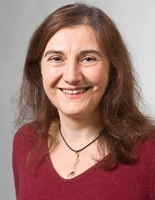
|
Prof. Dr. | Nora | Brambilla | 217 | +49 89 289-12353 |
Sekretariat
| Photo | Akad. Grad | Vorname | Nachname | Raum | Telefon | |
|---|---|---|---|---|---|---|
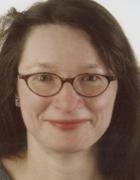
|
Susanne Antoinette | Tillich | 209 | +49 89 289-12358 |
Wissenschaftlerinnen und Wissenschaftler
| Photo | Akad. Grad | Vorname | Nachname | Raum | Telefon | |
|---|---|---|---|---|---|---|

|
M.Sc. | Saray | Arteaga Escatel | – | – | |

|
Dr. | Hee Sok | Chung | – | – | |

|
Dr. | Lin | Dai | – | – | |
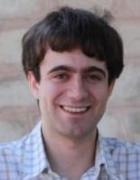
|
Dr. | Rafael | Delgado López | – | +34 682 741078 | |

|
M.Sc. | Niklas | Döpper | – | – | |
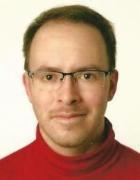
|
M.Sc. | Maurus | Geiger | 303 | – | |

|
Dr. | Nikolay | Kivel | – | +49 89 289-12391 | |

|
Ph.D. | Zeno | Kordov | – | – | |

|
Ph.D. | Wai Kin | Lai | – | – | |

|
Dr. | Viljami | Leino | – | +49 89 289-14613 | |

|
M.Sc. | Julian | Mayer-Steudte | – | – | |

|
Dr. | Abhishek | Mohapatra | – | +49 89 289-14330 | |

|
M.Sc. | Gramos | Qerimi | – | +49 89 289-12359 | |

|
Dr. | Saga Aurora | Säppi | – | – | |

|
M.Sc. | Tommaso | Scirpa | – | – | |

|
M.Sc. | Sebastian | Steinbeißer | – | +49 89 289-12359 | |

|
M.Sc. | Peter | Vander Griend | – | +49 89 289-12359 | |

|
Dr. | Xiangpeng | Wang | – | – | |
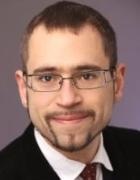
|
Dr. | Johannes | Weber | 302 | +49 176 614 02468 |
Studierende
| Photo | Akad. Grad | Vorname | Nachname | Raum | Telefon | |
|---|---|---|---|---|---|---|

|
Youssef Hassan Abdelmonem Mohamed | Ahmed | – | – | ||
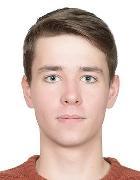
|
Andrii | Dashko | – | – | ||

|
Eduardo Alejandro | Romero Arteaga | – | – | ||
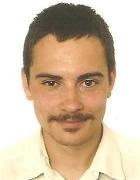
|
Yordan | Toshev | – | – |
Lehrangebot der Arbeitsgruppe
Lehrveranstaltungen mit Beteiligung der Arbeitsgruppe
| Titel und Modulzuordnung | |||
|---|---|---|---|
| Art | SWS | Dozent(en) | Termine |
|
Advanced Quantum Mechanics
Zuordnung zu Modulen: |
|||
| VO | 2 | Brambilla, N. |
Mo, 10:00–12:00, PH HS2 |
|
Effective Field Theories
Zuordnung zu Modulen: |
|||
| VO | 4 | Vairo, A. |
Di, 14:00–16:00, PH 3343 Do, 10:00–12:00, PH 3343 |
|
Group Theory in Physics
eLearning-Kurs Zuordnung zu Modulen: |
|||
| VO | 4 | Kaiser, N. |
Fr, 14:00–17:00, PH HS2 |
|
Quantum Mechanics 2
eLearning-Kurs Zuordnung zu Modulen: |
|||
| VO | 2 | Brambilla, N. |
Fr, 10:00–12:00, PH HS2 |
|
Spezielle Funktionen in der theoretischen Physik Zuordnung zu Modulen: |
|||
| VO | 2 | Kaiser, N. |
Mi, 16:00–18:00, PH HS1 |
|
Theoretische Physik 2 (Elektrodynamik) eLearning-Kurs LV-Unterlagen Zuordnung zu Modulen: |
|||
| VO | 4 | Kaiser, N. |
Di, 16:00–18:00, PH HS1 Fr, 10:00–12:00, PH HS1 |
|
Exercise to Quantum Mechanics 2
eLearning-Kurs Zuordnung zu Modulen: |
|||
| UE | 2 |
Mohapatra, A.
Säppi, S.
Leitung/Koordination: Brambilla, N. |
Termine in Gruppen |
|
Offenes Tutorium zu Theoretische Physik 2 (Elektrodynamik) Zuordnung zu Modulen: |
|||
| UE | 2 |
Geiger, M.
Leitung/Koordination: Kaiser, N. |
Mi, 12:00–14:00, GALILEO Taurus Mi, 12:00–14:00, ZEI 0001 |
|
Übung zu Fortgeschrittene Quantenmechanik Zuordnung zu Modulen: |
|||
| UE | 2 |
Mohapatra, A.
Säppi, S.
Leitung/Koordination: Brambilla, N. |
einzelne oder verschobene Termine sowie Termine in Gruppen |
|
Übung zu Theoretische Physik 2 (Elektrodynamik) eLearning-Kurs LV-Unterlagen Zuordnung zu Modulen: |
|||
| UE | 2 |
Geiger, M.
Leitung/Koordination: Kaiser, N. |
Termine in Gruppen |
|
Zentralübung zu Theoretische Physik 2 (Elektrodynamik) eLearning-Kurs Zuordnung zu Modulen: |
|||
| UE | 2 | Kaiser, N. |
Mo, 16:00–18:00, PH HS1 sowie einzelne oder verschobene Termine |
|
Colloquium of the Maier-Leibnitz Laboratory
aktuelle Informationen Zuordnung zu Modulen: |
|||
| KO | 2 | Kaiser, N. |
Do, 16:00–18:00, LMU-HS sowie einzelne oder verschobene Termine |
|
Introduction to the State of the Art in Effective Field Theories in Particle and Nuclear Physics
Zuordnung zu Modulen: |
|||
| SE | 2 | Brambilla, N. | |
|
Repetitorium theoretische Physik Zuordnung zu Modulen: |
|||
| RE | 2 | Kaiser, N. |
Mo, 15:30–17:00 |
|
Seminar on Effective Field Theories
Zuordnung zu Modulen: |
|||
| SE | 4 | Brambilla, N. Vairo, A. |
Mi, 14:00–16:00, PH 1121 Fr, 14:00–16:00, PH 3343 sowie einzelne oder verschobene Termine |
|
Seminar über aktuelle Fragen der Teilchenphysik: Theorien, Methoden und Anwendungen Zuordnung zu Modulen: |
|||
| SE | 4 | Vairo, A. | |
Abgeschlossene und laufende Abschlussarbeiten an der Arbeitsgruppe
- Open Quantum Systems, Lindblad Equation and Decoherence in Quantum Mechanics
- Abschlussarbeit im Bachelorstudiengang Physik
- Themensteller(in): Nora Brambilla
- Quarkonium at non-zero isospin density
- Abschlussarbeit im Bachelorstudiengang Physik
- Themensteller(in): Nora Brambilla